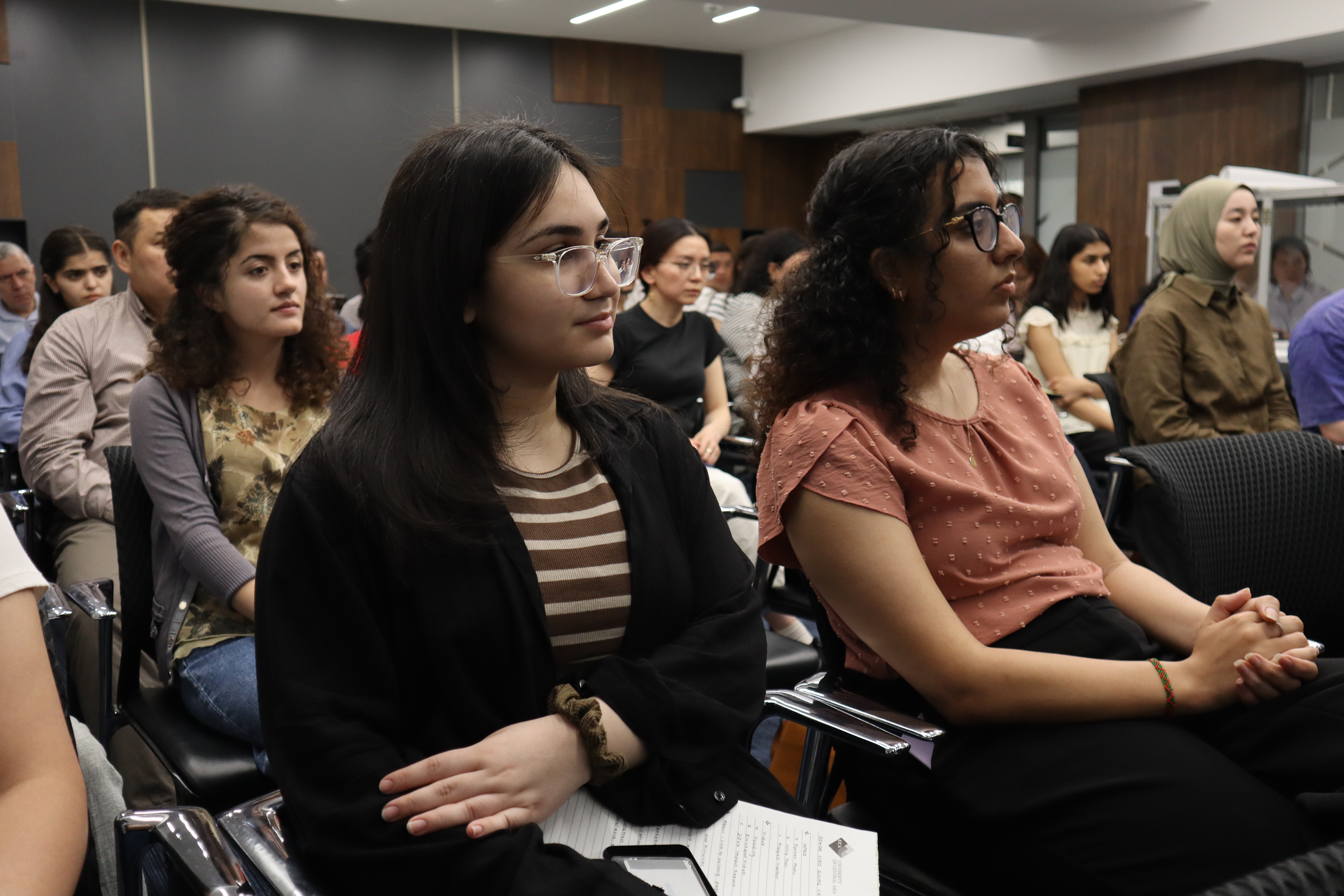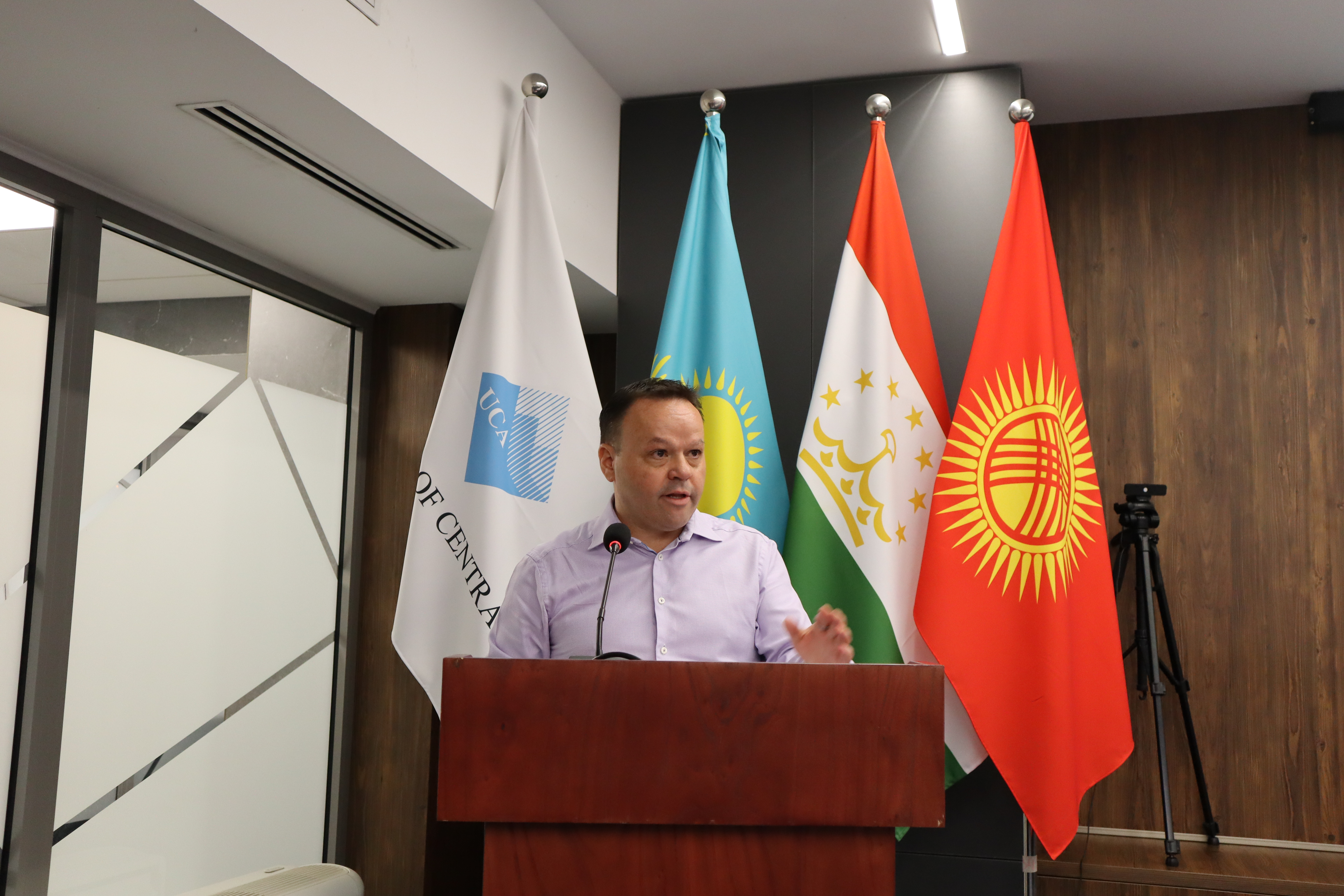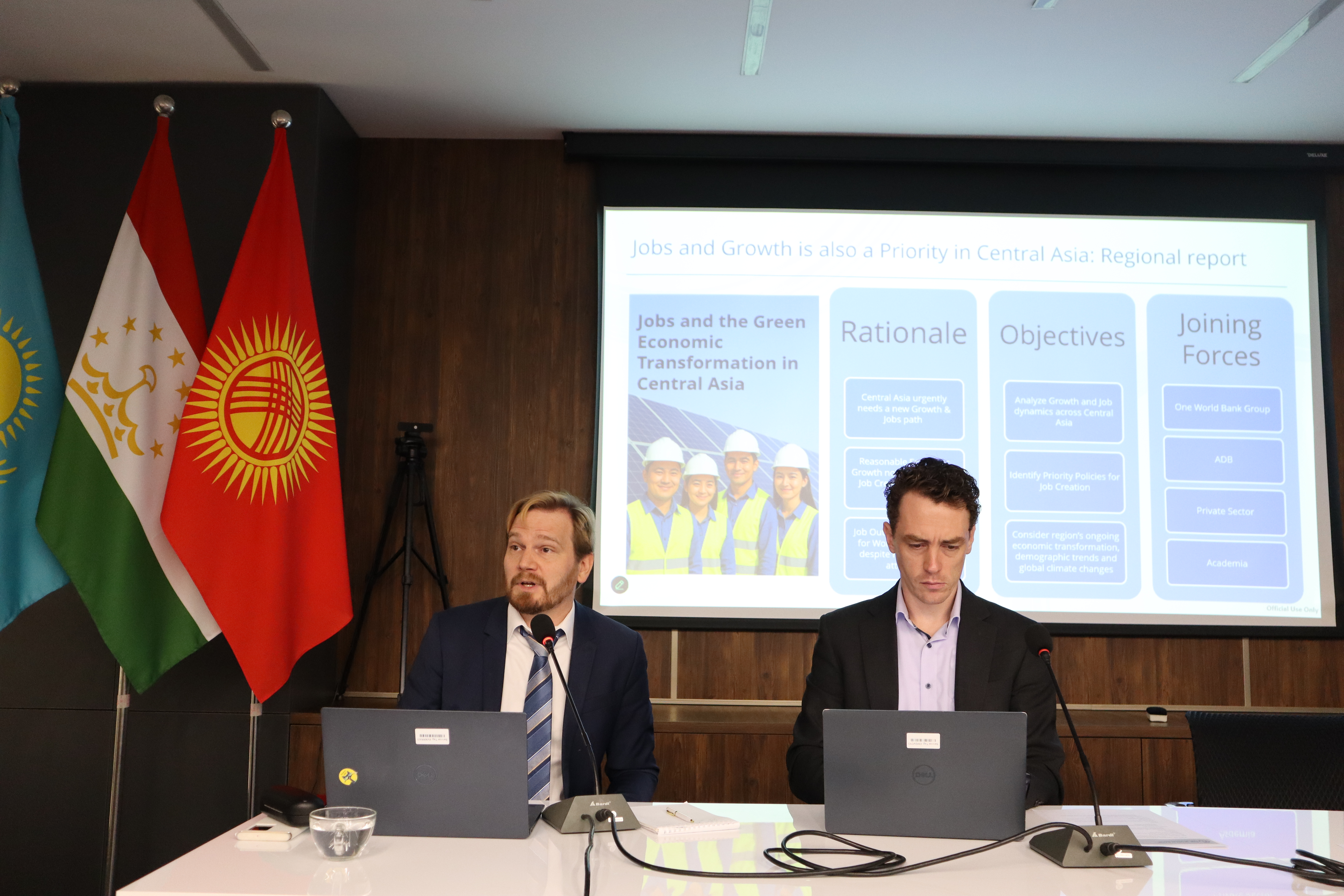
UCA and World Bank Host Round Table on Youth Employment and Skills for Economic Transformation in Kyrgyzstan
The University of Central Asia (UCA), in collaboration with the World Bank, convened a round table on “Modern Skills Requirements and the Role of Educational Institutions to Support Jobs-Rich Economic Transformation and Youth Employment.” Held in a hybrid format at UCA’s headquarters, Bishkek, the event brought together leading economists, educators, students and development partners to discuss the pressing challenges and opportunities in aligning education with labour market demands in the Kyrgyz Republic and Central Asia.
In his opening remarks, Professor Christopher Gerry, Rector of UCA, highlighted the University’s role in producing highly qualified graduates to address the skills gaps and support jobs-rich economic transformation: “The topic of modern skills, jobs and youth employment is something we work on every day – every day at the School of Arts and Sciences, where we educate undergraduates, and at the School of Professional and Continuing Education, where we educate early and mid-career professionals as well as teenagers who are desperately looking to build that skill profile to secure their own future.
The belief of young people that through education they can shape their own future is becoming increasingly fragile, as digital technologies transform our labour markets, our economies and our lives. And it is our collective responsibility—UCA as educators, the World Bank and others as development partners, and governments—to protect the youth's confidence in their future.”
The keynote presentation by David Stephen Knight, Lead Economist at the World Bank, and Michael Weber, Senior Economist for Human Development at the World Bank, provided analysis of the state of economic transformation and labour market dynamics in the Kyrgyz Republic.
“In the World Bank, we always focus on development, poverty reduction, inequality, growth and jobs. Ensuring enough and sufficient quality jobs is a big issue for both developed and developing countries. Central Asia is one of the fastest growing economic sub-regions in Eurasia, but the growth might be volatile. In our work, we look at how to help countries like the Kyrgyz Republic to achieve rapid development and economic growth,” shared David Stephen Knight.
According to the World Bank, the majority of employment remains informal, concentrated in low-productivity sectors, while the rapidly evolving digital and green economies are struggling to find adequately trained talent.
The discussion focused on the persistent mismatch between skills supply and market demand, high levels of informality in employment and the urgent need to reform higher and vocational education. Participants explored how institutions like UCA play a critical role in addressing these gaps.















